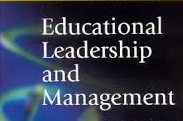B.Ed(1.5) 3rd Semester
|
Course Description |
|
Schools are experiencing a paradigm shift in conceptions and operations related to school management. Systems thinking have become the major paradigm for school improvement efforts. Traditional analytical thinking focuses on isolating smaller and smaller parts of a system for study. Systems thinking, on the other hand, focus on interactions between the different components of a system and aims to consider the system as a whole rather than as separate components within a whole. Thus, in a school system each part or individual is a necessary component for the system’s optimal function. The main goal of this course is to develop the capacity of Student Teachers to understand school as a system and to view school management through a systems approach. This will enable them to identify and examine their role in the school system and its significance in improving the learning outcomes of students. The course will also help Student Teachers to unearth, examine, and consider alternatives to the norms that shape status quo teaching if they are to become innovative and thoughtful professionals. |
|
Course Outcomes |
|
Unit 1: School System, Management and Leadership |
|
|
Week 1 to 3 |
(a) Organization, administration, management, supervision and leadership
|
|
(b) Systems thinking
|
|
|
Unit 2: Management vs. Leadership |
|
|
Week 4 to 6 |
|
|
|
|
Unit 3: Types of Leadership |
|
|
Week 7 & 8 |
|
|
Unit 4: Core management skills for teachers |
|
|
Week 9 & 10 |
(a) Communication skills
|
|
(b) Interpersonal skills
|
|
|
Unit 5: The school as a learning organization and teamwork in the workplace |
|
|
Week 11 to 13 |
(a) Conceptualizing the school as a learning organization
|
|
(b) Managing cooperation within the school
|
|
|
(c) Leadership and Team Building · Team building process · Essential building blocks for teams · The POPCI fundamentals for effective teams- Purpose, Organization, Process, Culture & Influence |
|
|
Unit 6: School plant management |
|
|
Weeks 14 to 16 |
|
|
(c) School record management (concepts and principles)
|
|
|
Textbooks and references |
|
|
· Owens, Robert G. (2004). Organizational behavior in education. Boston, MA; Pearson Publishing Company. · Collins, Jim (2001). Good to great: why some companies make the lead . . . and others don’t. New York, NY: Harper Publishers Company. · Fullan, Michael ((2003). The moral imperative of school leadership. Thousand Oaks, Calif: A Sage Publication Company. · Razik, T. A., & Swanson, A. D. (2010). Fundamental concepts of educational leadership and management. Upper Saddle River, NJ: Pearson, pp. 54–73. · Hoy, W. K., & Miskel, C. G. (2008). Educational administration: Theory, research, and practice. Boston: McGraw-Hill, pp. 8–34. · Sidhu, K. S. (2005). School organization and administration. New Delhi: Sterling Publishers, pp. 1–25. · Northhouse, G. (2007). Leadership: Theory and practice. New Delhi: Sage Publications, pp. 175–186. · Razik, T. A., & Swanson, A. D. (2010). Fundamental concepts of educational leadership and management. Upper Saddle River, NJ: Pearson, pp. 103–126. · Lunenburg, F. C., & Ornstein, A. C. (2007). Educational administration: Concepts and practices. Belmont, CA: Wadsworth Publishing Company, pp. 176–196. · Sidhu, K. S. (2005). School organization and administration. New Delhi: Sterling Publishers, pp. 271–286. · Hoy, W. K., & Miskel, C. G. (2008). Educational administration: Theory, research, and practice. Boston: McGraw-Hill, pp. 33–36, 356–371. · Shami, P. A., & Waqar, A. (2007). School management and supervision. Islamabad: Academy of Educational Planning and Management, pp. 3–5. · Busher, H. (2006). Understanding educational leadership: People, power and politics. New York: Open University Press, pp. 1–11, 148–162. · Sidhu, K. S. (2005). School organization and administration. New Delhi: Sterling Publishers, pp. 53–61. |
|

- Teacher: Dr. Sajida Naureen